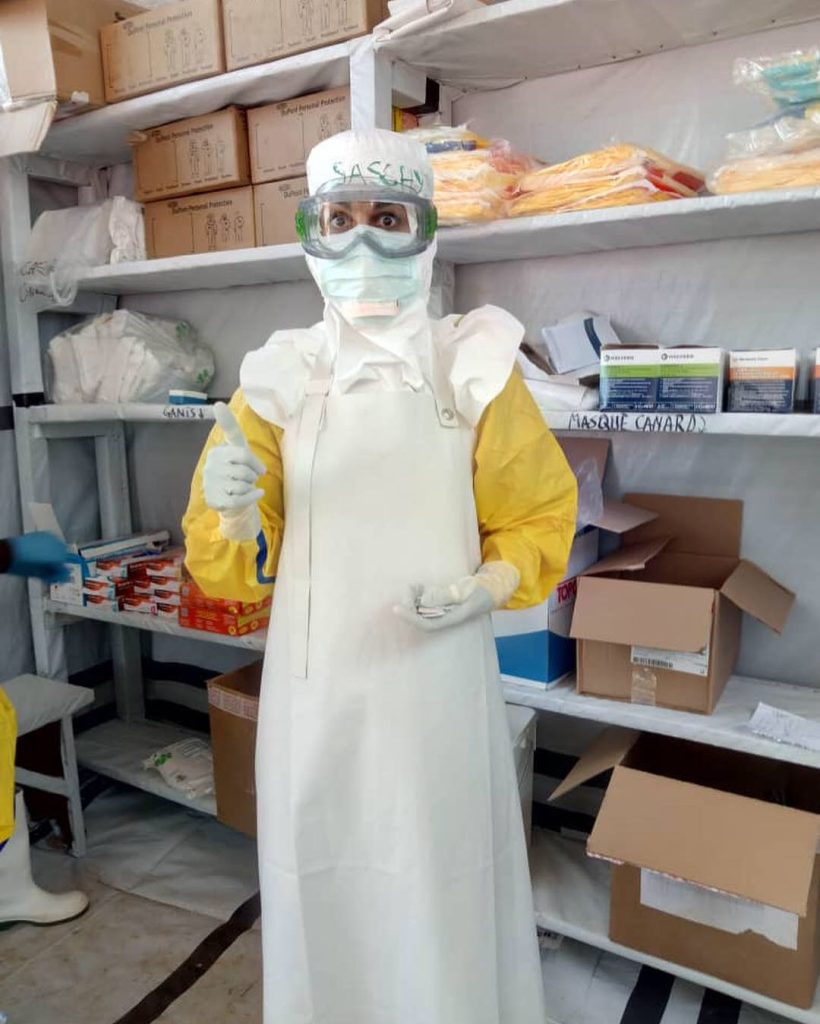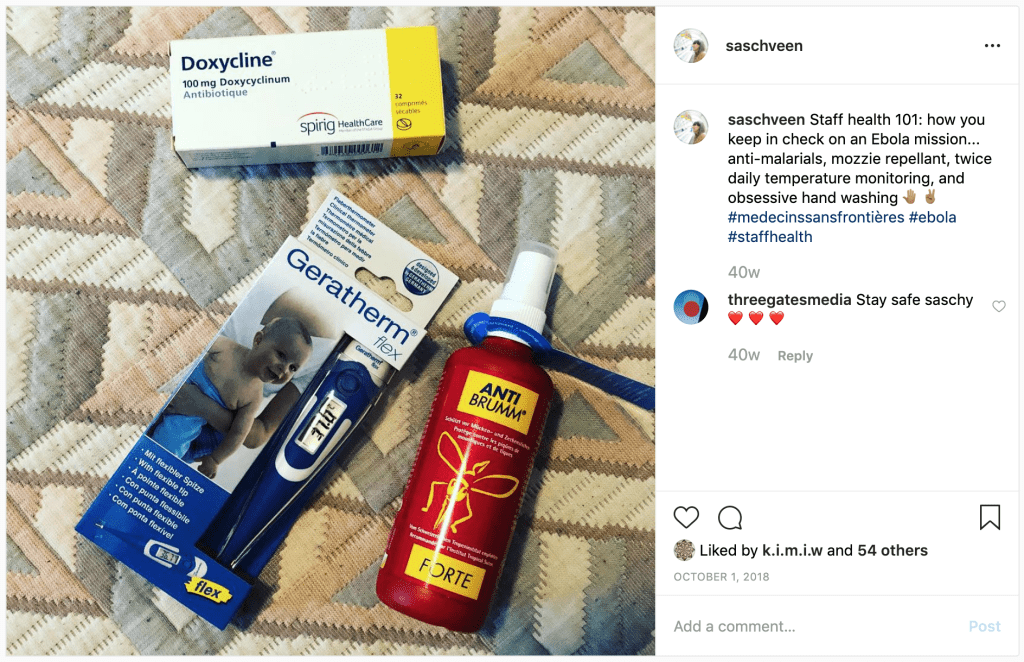Dr Saschveen Singh, Capstone Health, Wembley
Ebola Staff health: not your average travel medicine story.
Since the West African outbreak made international headlines in 2015-2017, Ebola has been shrouded in myth. Many had forgotten its existence.
But the recent major outbreak in the Democratic Republic of Congo (DRC) has put the disease centre-stage again.
When I was placed at an Ebola treatment centre with Médecins Sans Frontières (MSF, Doctors without Borders) my friends and family first asked me why on earth I wanted to go there; and, second, what I would do to stay safe.
The thought of working in a complex disease outbreak setting is confronting enough, and then you have the added challenges of DRC’s North Kivu and Ituri provinces.
These are conflict zones with a crippled health infrastructure, already struggling to cope with everyday killers such as malaria, pneumonia and malnutrition, let alone Ebola.
A year since the outbreak began, political instability and ongoing mistrust mean it’s not slowing down. That’s despite a new vaccine - as yet still investigational, but appearing to be effective - and a handful of trial therapies also showing promising results.
There are many ways Ebola workers can stay safe:
1. Mind and body preparation
a. Intellectual: being up to date with information and research on the Ebola Virus, the signs, symptoms, diagnostic and treatment methods;
b. Psychological: being emotionally prepared - ready to work long hours, in a remote setting, far from family and creature comforts. It’s being ready to face many challenges, including insecurity due to armed groups; and despite all best efforts, seeing many deaths from this tragic illness;
c. Physical: being in good shape. Working in a treatment centre is physically demanding: the protective equipment is cumbersome, and it can get very hot and difficult to breathe.
2. Vaccinations
a. There is an investigational vaccine available for Ebola, which is being used to curb transmission from patients to their families and contacts, and in health workers. I had this vaccine as soon as I arrived in the DRC, and although we cannot assume it offers 100% protection or can replace meticulous infection control procedures and protective equipment, it was still an important tool.
3. Preventing other infectious diseases
a. Preventing malaria is essential. Taking doxycycline or malarone is a pre-requisite, and mosquito repellent is important! But flu-like illnesses, gastroenteritis, chest and skin infections need to be prevented. If you develop a fever, it can be impossible to tell at first whether it’s Ebola or a common cold, so you need to be vigilant. Otherwise, you can end up in quarantine and be medically evacuated for Ebola testing and treatment.
4. Personal protective equipment (PPE)
a. The PPE required for viral haemorrhagic fevers such as Ebola and Marburg has to be meticulously applied and removed in the correct order. Each layer you remove must be decontaminated with chlorine spray. See the video link here.
5. Handwashing points everywhere: with soap and water and chlorine. As I doctor I’m used to washing my hands frequently, but on an Ebola assignment there’s a whole new level: you wash your hands a hundred times a day.
6. No-touch policy
a. Don’t touch your face! No rubbing your eyes or touching your mouth. This further reduces the risk of contamination.
b. It is forbidden to touch other people, not easy when even a hug to comfort a distressed colleague is impossible.
7. Health monitoring during and after the assignment
a. Temperature monitoring: Recording your temperature at least twice daily during your assignment and for a further 21 days afterwards. This becomes part of your normal existence, but each time it is a long (and sometimes anxious) minute as you wait for the “beep” on your thermometer to indicate the all-clear.
8. Emotional wellbeing
a. Keeping connected with home
i. Although the internet connection was patchy at best, thank goodness for WhatsApp!
b. Creating connections with team members
i. Looking after each other when times were tough, and enjoying a few social activities: music, playing cards, even having a laugh over a beer.
Dr Saschveen Singh She worked as a Medical Activity Manager at Butembo Ebola Treatment Centre, Médecins Sans Frontières, from Sept to Nov 2018.

